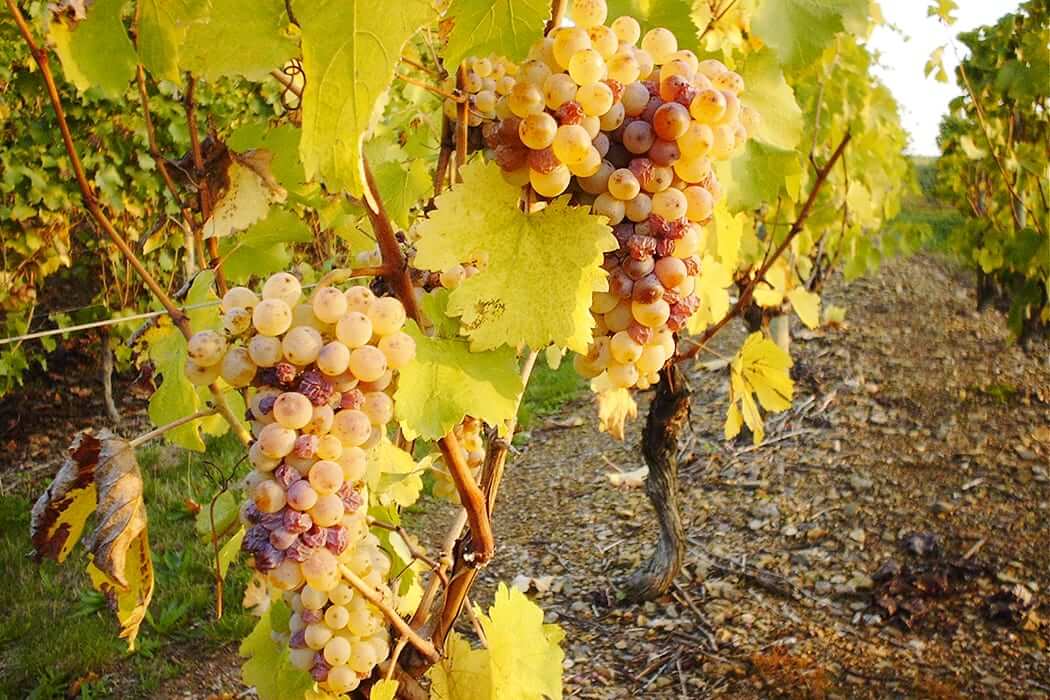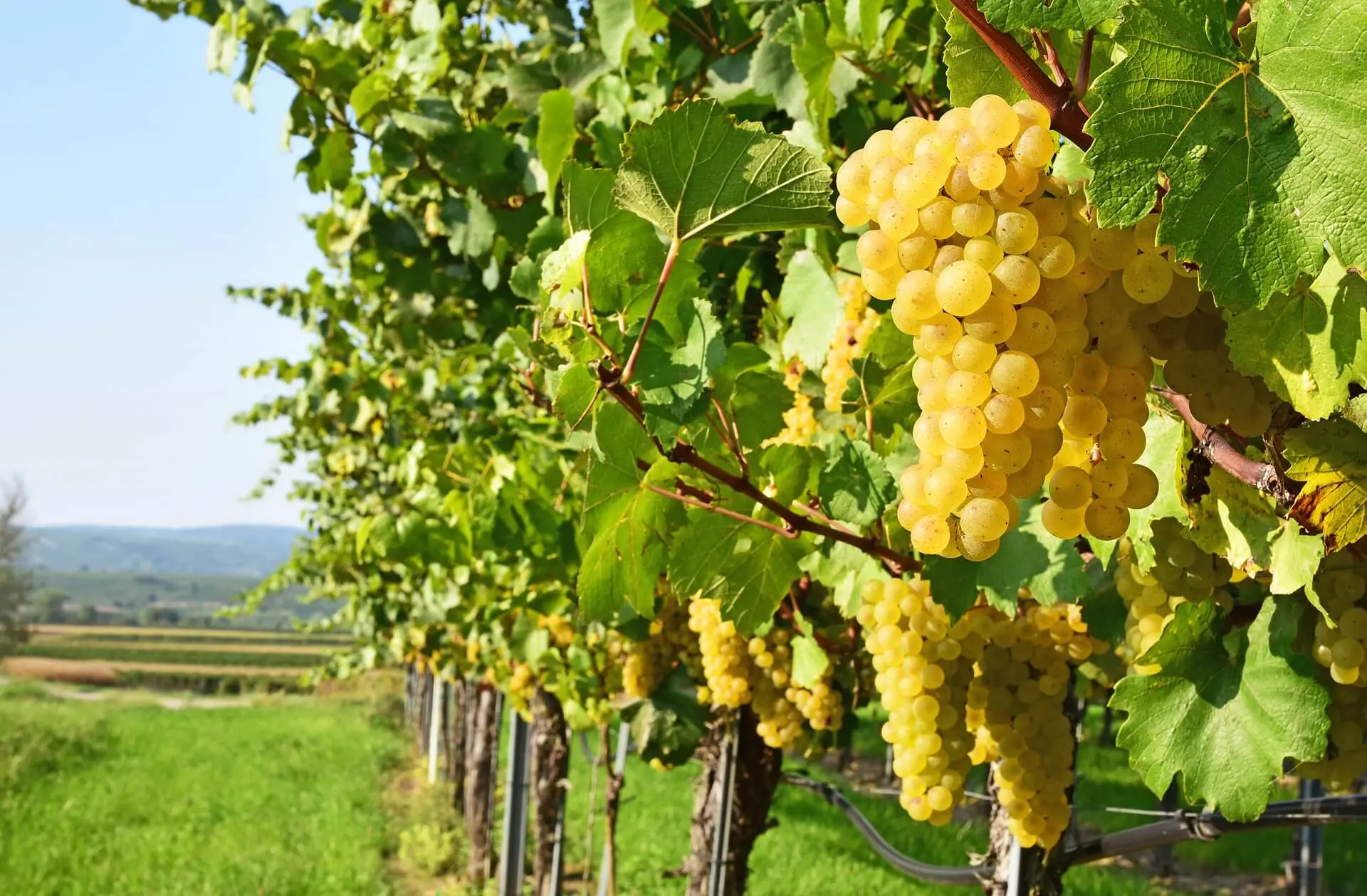In the wine world, there is a growing trend toward sustainable and environmentally conscious wine production. Two approaches that stand out in this are organic and biodynamic viticulture.But what exactly do these terms mean? How do they influence the way wine is produced and how do they affect the final taste and quality of the wine?
The rise of sustainable viticulture
Sustainable viticulture is not just a trend; it is a response to growing concerns about the environmental impact of traditional farming practices.Excessive use of pesticides and fertilizers can damage soil and the surrounding ecosystem.Winemakers around the world have addressed this challenge by moving to organic and biodynamic practices that promote vineyard and environmental health.What are organic wines?
Organic viticulture is an agricultural method that avoids the use of chemical pesticides, herbicides, fungicides and fertilizers.Instead, organic vintners rely on natural methods to control pests and diseases in the vineyard and promote soil health.These methods can include using natural compost and manure to feed the soil, encouraging natural predators to control harmful insects, and using biodegradable materials in the vineyard.Organic winemakers believe these methods are not only better for the environment but also produce better wines because they respect the natural balance of the vineyard and reflect the unique characteristics of the terroir in the wine.Regulations and certification of organic wine
The “organic” label is protected by law and can only be used by wineries that meet strict standards and are regularly inspected by a recognized certification body.In the European Union, for example, standards for organic farming are set by the European Commission and control and certification is in the hands of independent organizations recognized by member states.The certification process usually includes a transition period of several years, during which the vineyard must be completely free of chemical pesticides and fertilizers.In addition, vintners must keep a detailed plan of their winemaking practices and allow regular inspections to verify their compliance with the standards.Advantages and challenges of organic viticulture
The benefits of organic viticulture are numerous. In addition to reducing environmental impact, many winemakers believe organic practices lead to healthier vineyards and better wines.Moreover, organic wines can appeal to consumers looking for natural and sustainable products.At the same time, organic viticulture also brings challenges. It requires more manual labor and attention to detail than conventional viticulture, and yields can vary due to weather conditions and pests. Moreover, the certification process can be time-consuming and costly.Nevertheless, more and more winemakers are choosing organic methods, driven by the belief that it is the best way to produce quality wines that are true to their terroir and good for the planet.What are biodynamic wines?
Biodynamic viticulture is a step beyond organic viticulture. It is not just about avoiding chemicals, but follows a holistic approach that sees the vineyard as a living, self-nourishing system.The biodynamic approach was developed by Rudolf Steiner, an Austrian philosopher and scientist, and is based on his philosophy of anthroposophy.Biodynamic viticulture takes into account the cycles of the sun, moon and planets, and uses a range of preparations made from plant and animal materials to promote soil and vineyard health.For example, the “horn manure” (Preparation 500) – cow manure buried in a cow horn over winter and then diluted and sprayed over the vineyard – is one of the best-known biodynamic preparations. It is used to promote soil fertility.Bürklin-Wolf: Pioneers in Biodynamic Viticulture
Bürklin-Wolf, a renowned winery in the Palatinate region of Germany, is known for its commitment to biodynamic viticulture. This prestigious winery, one of the largest and oldest of its kind, has embraced the move to biodynamic methods, with a deep focus on the health of both the vineyard and the ecosystem.By using natural preparations and following the biodynamic calendar, Bürklin-Wolf strives to produce wines that not only respect the environment, but also reflect the unique terroir of their vineyards. Their wines, known for their purity, complexity and expression, exemplify how biodynamic principles can lead to extraordinary wines. Of course, we have some great wines from Burklin-Wolf for you.Regulations and certification of biodynamic wine
As with organic wine, the term “biodynamic” is protected by law and winemakers may use it only if they meet strict standards and are regularly inspected by an accredited certification body.The main certification body for biodynamic viticulture is Demeter International, although there are others such as Biodyvin.These bodies set strict standards for all aspects of viticulture and winemaking, including the prohibition of chemicals, the obligation to use biodynamic preparations and restrictions on certain winemaking techniques.They also require winemakers to take cosmic rhythms into account when working in the vineyard and winery.Benefits and challenges of biodynamic viticulture
As with organic viticulture, the biodynamic approach offers a range of advantages. It can lead to healthier vineyards, better wine and less environmental impact.Moreover, it can better express the unique characteristics of the terroir in the wine because it takes into account the subtle influences of the natural and cosmic environment.At the same time, there are challenges. Biodynamic viticulture requires a high level of dedication and knowledge and can be more labor-intensive than other methods.In addition, some people may be skeptical of the more esoteric aspects of biodynamic philosophy.Nevertheless, there is growing interest in biodynamic wines, both among winemakers and consumers, as a way to produce high-quality wines that truly express their terroir and are produced in a more sustainable way.Differences between organic and biodynamic wines
Contrasting approaches: Organic versus Biodynamic
Although both organic and biodynamic viticulture are based on a respect for the environment and a rejection of chemical inputs, the two differ in their approach and philosophy.Organic viticulture focuses mainly on what should not enter the vineyard, namely synthetic pesticides, herbicides and fertilizers.Above all, it is about producing grapes (and therefore wine) in a way that is sustainable and harms the environment as little as possible.Biodynamic viticulture, on the other hand, goes a step further by seeing the vineyard as a living, breathing ecosystem.This approach looks not only at what not to put in the vineyard, but also at how to strengthen and balance the vineyard system by using natural preparations and considering cosmic and terrestrial rhythms.Taste and quality: Organic versus Biodynamic
The differences in approach between organic and biodynamic viticulture can also lead to differences in the taste and quality of the wine.Because biodynamic viticulture emphasizes working in harmony with natural and cosmic rhythms, some winemakers and wine drinkers claim it leads to wines with a better expression of terroir – the unique character of the place where the wine is produced.In addition, biodynamic wines can also have greater vitality and complexity due to the health of the vineyard and limited intervention in winemaking.However, this remains a highly subjective issue and taste perceptions can vary greatly between individual wine drinkers.It is also important to note that both organic and biodynamic wines can vary in quality, just like conventional wines. Good viticulture and winemaking practices are crucial regardless of the approach.The best organic and biodynamic winemakers are those who apply the principles of these approaches with care, attention and skill.Consumer benefits
Choosing organic and biodynamic wines can have several benefits for consumers. First, there are the potential health benefits.Although the effect of pesticide residues on health is still a topic of debate, many people choose to consume organic products as a precaution.This also applies to wine.
In addition, there may be benefits to the taste and quality of the wine.As mentioned earlier, some winemakers and consumers claim that biodynamic wines have a better expression of terroir and greater complexity and vitality.The purity of flavor is also often cited as an advantage of organic and biodynamic wines.Finally, there are the ethical and environmentally friendly aspects.By choosing organic and biodynamic wines, consumers support winemaking practices that are less harmful to the environment and promote biodiversity and sustainability in the vineyard.How to recognize and choose organic and biodynamic wines
Recognizing organic and biodynamic wines in the store can sometimes be a challenge. One easy way is to search for certification labels.For organic wines, this is often a green logo with the word “organic” or “organic,” depending on the country of origin. In Europe, there is a specific EU organic logo that must appear on all EU organic products.There are two main certification organizations for biodynamic wines: Demeter and Biodyvin. Wines certified by one of these organizations carry their logo on the label.However, it is important to note that not all winemakers working organically or biodynamically choose to have their wines certified.This could be for a variety of reasons, such as the cost and administrative burden of certification.Therefore, it can also be helpful to research which wineries are known for their organic or biodynamic approach.When choosing an organic or biodynamic wine, it is also important to consider other aspects, such as the grape variety, terroir, style of wine and, of course, your personal taste preferences.A growing trend
Organic and biodynamic wines represent an ever-growing segment in the world of wine, driven by consumers seeking healthier, more sustainable options and wines with a strong sense of place.Although they share some similarities, organic and biodynamic approaches to viticulture each offer their unique methods and philosophies, which are reflected in the wines they produce.Organic wines, with their focus on minimizing chemical inputs and preserving biodiversity, offer consumers a way to reduce their environmental impact while also enjoying wines that are considered more pure and expressive.Biodynamic wines go one step further, with a holistic approach to the vineyard as a living organism, creating wines that some consider more vibrant and complex.It is important to remember that not all organic or biodynamic wines are created equal. As with any wine, quality and style vary widely depending on the winemaker and terroir.Therefore, it is important to approach organic and biodynamic wines with an open mind and a willingness to explore and discover.


